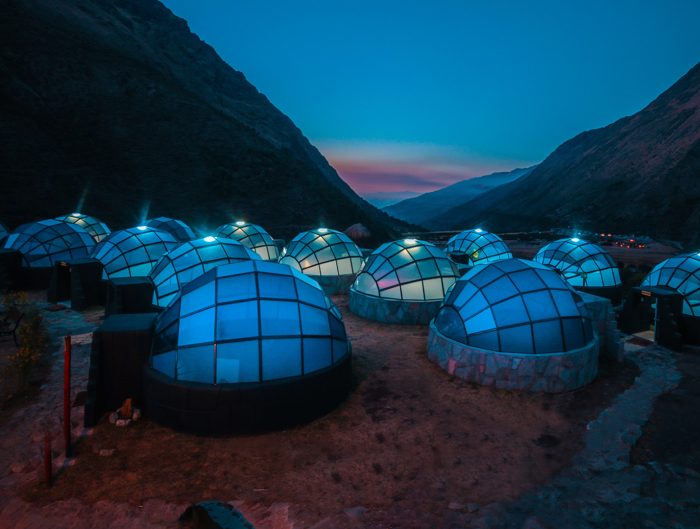The power and beauty of Andean music often go unnoticed among more Westernized Peruvians, but it is widely recognized and admired by the majority of the population. While some people in Lima may think that rock is everything in Peru, you can find official surveys that indicate that cumbia and huayno (Andean music) are the genres most listened to by Peruvians. Only 6% of people listened to rock.
In Cusco city, you can hear Andean music almost everywhere: over the radio in taxis and on public buses, on the street accompanying dancers during a parade, at a massive concert on the Plaza de Armas. Over the centuries, Andean music has continued to thrive in both Quechua and Spanish, adapting to changing times and contexts.
These melodies that touch the souls of Andean people are accompanied by ingenious and profoundly poetic lyrics that can match classic French or German poetry any day. for this reason, we want to show you some examples of the deep and subtle poetry with its roots in the Andes that you can easily find on Spotify.
1. Pucuysito – Trio Ayacucho
As their name indicates, this trio hails from Ayacucho, Cusco’s regional neighbor. Despite its proximity to Cusco, it is still possible to clearly differentiate between the music of the two regions. For example, the guitar is used more predominantly in Ayacucho than in Cusco, as we can hear in Pucuysito.
This song is dedicated to the Puku-puku bird. Before the arrival of the Spaniards, the Puku-puku used to wake people up. The lyrics refer to the particular song of this bird that marks the daily schedule of Andean inhabitants and helps them to work in a happy and organized fashion.
While doing the Salkantay Trek, carefully listing to the singing birds and tell them the same words of Pucuysito: “How I wish I had your sweet voice to sing to my beloved” You are asking the bird for the beauty of its song to escape from your own mouth – isn’t that beautiful?
English lyrics:
Pucuysito of the highlands
clock of the Andes
in the mountains and in the cliffs
you always sing your “pukuy-pukuy”.
How I wish I had
your sweet voice
to sing to my beloved
to my dearly beloved
A hundred sorrows you had
in your precious life
today I caress you
to console you.
Spanish and Quechua lyrics:
Pucuysito de las punas
relojito de los Andes
urqupipas qasapipas
a toda hora “pukuy-pukuy”.
Cómo quisiera tener yo
la dulzura de tu canto
para cantarle a mi amada
a mi amada tan querida.
Cien pesares has tenido
en tu vida tan preciada
hoy te brindo mis caricias
para poder consolarte.
2. Águila negra (Black Eagle)-Estudiantina Perú
Estudiantina Peru is a legendary Andean music group, and have performed together for the past 50 years. They hail from the city of Huancayo, the capital of the Junín region. This group was founded in 1968 by the violinist and composer Francisco “Panchito” Leyth Navarro and the accordionist Jorge Anaya, who created the specific sonority that typifies Estudiantina Peru. Navarro and Anaya collected and recorded huaynos from all over Peru.
Águila negra tells a love story that is interrupted without reason. The lyrics tell about a person who asks a black eagle for its wings to fly after his beloved, who is represented by a little dove. This little love left its home and is caught by someone else who encloses her in a distant house. Obviously, this causes much sadness for her partner. Employing the metaphor of a bird to refer to a loved one is very common in Andean music.
English lyrics
Black Eagle please lend me your wings
to pursue my little dove
she left our nest
without giving any reason.
Crossing mountains she flew away
has been imprisoned in that house
everyone tells me I should rescue her
to put my life and heart on the line
If you love me send me a letter
in that letter include a portrait
then I will know that you love me
with all your soul, life and heart.
Ay, honey, who knows
tomorrow when I leave, how it will be.
later when I’m absent, how will it be.
Spanish lyrics
Águila negra préstame tus alas
para seguir a mi palomita
ella se fue dejando su nido
sin que le diera ningún motivo.
Cruzando montes se fue volando
y en esa casa se halla prisionera
todos me dicen debo rescatarla
dejando prenda, vida y corazón.
Si tú me quieres mándame una carta
en esa carta manda tu retrato
entonces sí sabré que me quieres
con toda el alma, vida y corazón.
Ay, cariño, todavía
mañana cuando me vaya, cómo será.
pasado cuando me ausente, cómo será.
3. Cuerpo soltero (Single body) – Conjunto Condemayta de Acomayo
Conjunto Condemayta de Acomayo is another living legend in Andean music. With almost 50 years of artistic life in Cusco, this group was declared in 2005 as “Living Cultural Heritage” in their region and later, in 2011, as “National Heritage” by the Peruvian Ministry of Culture. Although the original musicians have varied, the essence of Conjunto Condemayta de Acomayo is composed by Mr. Saturnino Pulla Jiménez, who plays the harmonica, and Mrs. María Tintaya Rayo, known as Southern Lark for her melodious voice.
This song is about the stage in life that many of us have gone through. There comes a time when the youth we possess makes us believe that our body is indestructible and we abuse it a little by partying. The lyrics tell us in Spanish: “Single body, why do you not rest? Night after night, you are sleepless.” However, the most poetic part of the song is written in Quechua and speaks of a changing love. The lyrics say: “Can you see that cloud? It blackens and then turns white. Similarly, the person I love, remembers me and then forgets me.” Nature and its deep connection with the human being is always present in the poetry of these popular songs. Also, the nights in Cusco can be quite extreme; so, you may listen to this song to cure the hangover and wake up, single body!
English lyrics:
Single body, why do not you rest?
Night by night you are sleepless
this body is not thankful
night by night, you do not sleep well.
And now, that stone that I threw up ahead
Will it be back?
I wonder the same thing
about the person I love
Will he be back?
Can you see that cloud?
It blackens and then turns white
similarly, the person I love
remembers me and then forgets me.
Was it me who loved you?
It was just my heart that loved you
Was it me who looked at you?
It was just my eyes that looked at you
Spanish and quechua lyrics:
Cuerpo soltero, ¿por qué no descansas?
Noche a noche pasas mala noche.
Este cuerpo mal agradecido
noche a noche pasa mala noche.
Y ahora, aquella piedra que lancé al frente
¿regresará?
Lo mismo me pregunto
La persona que amo
¿regresará?
¿Puedes ver esa nube?
Se ennegrece y luego se vuelve blanca
del mismo modo, la persona que amo
me recuerda y luego me olvida
¿Acaso fui yo quien te quiso?
Fue mi corazón quien te quiso
¿Acaso fui yo quien te miró?
Fueron mis ojos los que te miraron
Aqhay chimpaman rumilla chanqasqay
maytaq kunanrí kutimunñachu
chay hinallataq, warmalla munasqay
maytaq kunanrí kutimunñachu.
maytaq kunanrí vueltamunñachu.
Qhawarinkichu haqay phuyuta?
Yanayarintaq yuraqyarintaq
chay hinallataq, warmalla munasqay
yuyariwantaq qonqariwantaq.
Nuqachu munakuranki?
Nuqachu wayllukuranki?
Sunquychá munarasunki!
Ñawiycha qhawarasunki!
4. La orquesta (The orchestra) – Raíces D’Jauja
The Junín region is again on our list with Raíces D’Jauja. With an artistic career that spans 19 years, this group started making waves in Andean music when they launched their first album “Un sentimiento de amor” (A feeling of love) in 2010, which included the song La Orquesta.
La Orquesta often brings its listeners to tears, because it is a song based on a profound sentiment – the feeling of being alive. In addition, its complexity is reflected in its story’s plot and its musical innovation. It combines themes such as betrayal, death, falsehood, and Andean music itself into a heart-wrenching love story. Similarly, according to an unauthorized biography of the band, the song fuses two dissimilar styles of Andean music: the traditional one from the Jauja zone (Junín, Peru) and a particular Bolivian style. In reality, Raíces D’Jauja is a group that boldly fuses many different styles of Andean music without undermining its essence.
English lyrics:
The band that will accompany me when I die
is already contracted and well-paid.
Do not worry, love, if you do not come to my grave to see me.
You don’t need to come, if you’ve never loved me.
You will only play the role of crying, hypocritically
telling others that you loved me, sincerely.
The people that will accompany me when I die
will be just a few: work mates,
my parents and family.
Do not worry, love, if you do not come to my grave to see me
You don’t need to come, if you’ve never loved me.
You will only play the role of crying, hypocritically
telling others that you loved me, sincerely.
Yesterday spoke to the cemetery guard
to take care of my grave
between drinking and singing
we sealed the deal
Spanish lyrics:
La orquesta que me va acompañar cuando yo muera
ya está contratada, cancelada y bien pagada.
No te preocupes amor, si a mi tumba no vienes a verme
para que vas a venir, si tú nunca me has querido.
Solo harás el papel de llorar, hipócritamente
diciendo a unos y a otros que me amaste, sinceramente.
La gente que me va a acompañar cunado yo muera
Son contaditos amigos de mi trabajo
Son contaditos mis padres y familiares
No te preocupes amor, si a mi tumba no vienes a verme
para que vas a venir, si tú nunca me has querido.
Solo harás el papel de llorar, hipócritamente
diciendo a unos y a otros que me amaste, sinceramente.
Ayer hablé con el guardián del cementerio
Para que cuide mi tumba
Entre copas y canciones
Hemos cerrado el compromiso
5. Ch’ullalla sarachamanta-Manuelcha Prado
Manuelcha Prado is a titan in Peruvian Andean music. At the age of 61 years, he has a voice that resonates as if it came from the clouds themselves. He is a composer, guitarist, and singer from the Ayacucho region. This version of the traditional song is accompanied by a violin played in the traditional Ayacucho manner.
This song is pure poetry from its title. Ch’ullalla sarachamanta means “A single grain of corn” and refers to a single grain of corn that, during a famine, was the only thing that two lovers had to share. It also talks about how life can suddenly change completely. Surprisingly, this song closes with a funny sexual metaphor
English lyrics:
You
with whom I shared
a single grain of corn
a single grain of wheat
where are you right now?
Immense as the seas
deep as the abyss
such is the love
I profess to you
Crying, you told me
that you would never forget me
And now, for no reason, you are thinking of forgetting me.
I’m not a banana passionfruit
Why, after sucking me well,
do you throw me away?
Spanish and Quechua lyrics:
Ch’ullalla sarachamanta
ch’ullalla triguchamanta
mikhuq masichallay
maypiñataq kanki?
Inmenso como los mares
profundo como el abismo
así es el cariño
que yo te profeso.
Llorando tú me decías
que nunca me olvidarías
y ahora sin motivo piensas olvidarme.
¿Acaso soy tumbo
Para que luego de chuparme bien
Me deseches?
We hope you’ve learned a little bit more about Andean music and poetry. Spend some time talking to Cusquenians, and open yourself to Andean culture. Several important secrets are waiting for you to be discovered. Come to Cusco, now.
Translated into English by Pieter Odendaal.














Leave A Reply